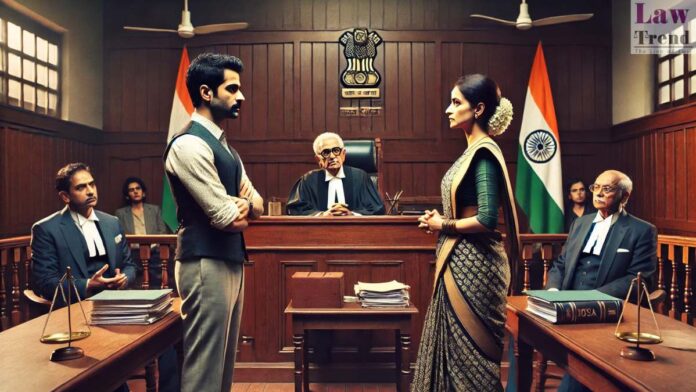In a notable decision highlighting the evolving interpretation of mental cruelty in matrimonial law, the Kerala High Court has upheld a Family Court’s order granting divorce to a woman who alleged that her husband was indifferent to marital intimacy and instead obsessed with spiritual pursuits.
The judgment was delivered on March 24, 2025, by a Division Bench comprising Justice Devan Ramachandran and Justice M.B. Snehalatha in Mat.Appeal No. 1037 of 2024, affirming the decree passed by the Family Court, Muvattupuzha in O.P. No. 224 of 2022.
Background of the Case
The marriage between the parties was solemnized on October 23, 2016 as per Hindu rites. The wife, an Ayurvedic doctor, alleged that from the beginning of the marriage, her husband:
- Showed no interest in a physical relationship;
- Was unwilling to have children;
- Was entirely devoted to spiritual practices, including frequent temple visits and rituals;
- Compelled her to live a life based on superstitious beliefs;
- Did not permit her to pursue her postgraduate studies;
- Allegedly misappropriated her stipend during her academic training;
- Eventually demanded divorce through messages, and later sought reconciliation when she filed a previous divorce petition in 2019.
Believing his assurance, she had withdrawn O.P. No. 871/2019, but soon found his behavior unchanged. She once again approached the Family Court in 2022 seeking dissolution of marriage on the ground of cruelty under Section 13(1)(ia) of the Hindu Marriage Act, 1955.
The husband denied all allegations and claimed:
- He had no superstitious beliefs;
- He supported her education and gave financial help;
- It was the wife who did not want to conceive before completing her M.D.;
- Her parents were interfering in their married life to control her salary;
- He never inflicted any form of cruelty.
Legal Issues Involved
- Whether the husband’s refusal to engage in sexual relations and disinterest in having children constitutes cruelty under Section 13(1)(ia) of the Hindu Marriage Act?
- Whether compelling a spouse to adopt spiritual or religious practices against their will amounts to mental cruelty?
- Whether persistent neglect, lack of intimacy, and emotional withdrawal can be considered grounds for divorce in the absence of physical violence?
- Whether the Family Court’s findings based on the evidence require interference by the appellate court?
Court’s Analysis and Findings
Justice M.B. Snehalatha, authoring the judgment, analyzed the evidence and testimony of the wife, who was examined as PW1. The Court held:
“Her case is that the respondent is a person who is more interested in spiritual affairs like visiting temples, conducting poojas and is not at all interested in leading a matrimonial life including sex.”
The Court accepted her version and found it credible that she had been subjected to mental cruelty. The Bench emphasized that:
“Unlike physical abuse, which is easier to prove, mental cruelty varies from case to case. Persistent neglect, lack of affection and denial of conjugal rights without valid reasons cause severe mental trauma to the spouse.”
On the spiritual imposition by the husband, the Court made a key observation:
“A marriage does not grant one partner the authority to dictate the other spouse’s personal beliefs, whether it is spiritual or otherwise.”
Citing the Supreme Court’s landmark ruling in Roopa Soni v. Kamalnarayan Soni [AIR 2023 SC 4186], the High Court reiterated that courts must adopt a flexible and subjective standard to determine cruelty:
“What is cruelty for a woman in a given case may not be cruelty for a man… A relatively more elastic and broad approach is required when we examine a case in which a wife seeks divorce.”
The Court also drew from its own precedent in Anilkumar V.K. v. Sunila.P [2025 (2) KHC 33], which held:
“What constitutes cruelty in a matrimonial relationship depends on the unique circumstances, behaviour, and experience of the parties involved.”
The Bench noted that the husband’s responses during cross-examination revealed his frequent temple visits and abstinence from marital obligations. His attitude, when viewed holistically, indicated complete emotional withdrawal and disregard for conjugal responsibilities.
Decision
The High Court concluded that the marriage had irretrievably broken down, and there was no mutual affection, trust, or companionship left between the spouses. It found no merit in the husband’s appeal and upheld the decree of divorce granted by the Family Court.
“We do not find any reason to unsettle the said finding, which is based on correct appreciation of facts and evidence.”
The appeal was dismissed, and the parties were directed to bear their own costs.




